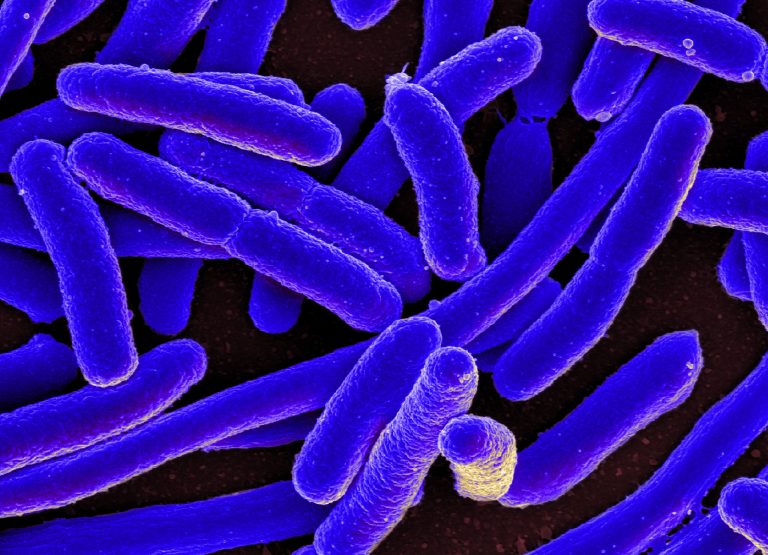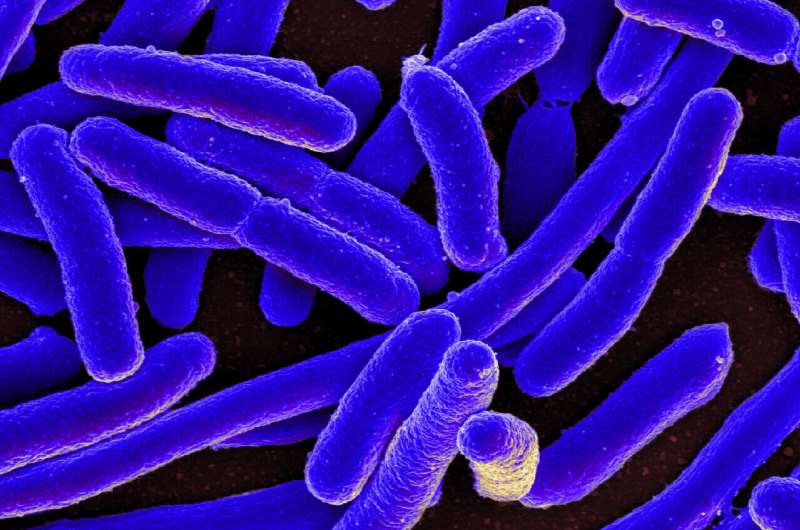
[ad_1]

Antimicrobial resistance (AMR) is continuous to extend globally, with charges of AMR in most pathogens rising and threatening a future during which every single day medical procedures could not be potential and infections thought lengthy handled might kill usually once more. As such, new instruments to battle AMR are vitally wanted.
A brand new analysis evaluate at this 12 months’s ESCMID World Congress (previously ECCMID—Barcelona 27–30 April) exhibits how the most recent CRISPR-Cas gene modifying know-how can be utilized to assist modify and assault AMR micro organism. The presentation is by Dr. Rodrigo Ibarra-Chávez, Division of Biology, College of Copenhagen, Denmark.
CRISPR-Cas gene-editing know-how is a groundbreaking technique in molecular biology that permits for exact alterations to the genomes of dwelling organisms. This revolutionary method, which introduced its inventors, Jennifer Doudna and Emmanuelle Charpentier, the Nobel Prize in Chemistry in 2020, permits scientists to precisely goal and modify particular segments of an organism’s DNA (genetic code).
Functioning like molecular ‘scissors’ with the steerage of information RNA (gRNA), CRISPR-Cas can reduce the DNA at designated spots. This motion facilitates both the deletion of undesirable genes or the introduction of latest genetic materials into an organism’s cells, paving the best way for superior therapies.
Dr. Ibarra-Chávez says, “Preventing fireplace with fireplace, we’re utilizing CRISPR-Cas techniques (a bacterial immunity system) as an revolutionary technique to induce bacterial cell dying or intervene with antibiotic resistance expression—each maintain promise as novel sequence-specific focused ‘antimicrobials.'”
One line of their work includes creating guided techniques in opposition to antimicrobial resistance genes that might deal with infections and stop dissemination of resistance genes.
Cellular genetic parts (MGEs) are components of the bacterial genome that may transfer about to different host cells or additionally switch to a different species. These parts drive bacterial evolution through horizontal gene switch. Dr. Ibarra-Chávez explains how repurposing cellular genetic parts (MGEs) and selecting the supply mechanism concerned within the antimicrobial technique is necessary for reaching the goal bacterium.
A phage is a virus that infects micro organism, and it’s also thought-about MGE, as some can stay dormant within the host cell and switch vertically. The MGEs his workforce is utilizing are phage satellites, that are parasites of phages.
He says, “These ‘phage satellites’ hijack components of the viral particles of phages to make sure their switch to host cells. In distinction to phages, satellites can infect micro organism with out destroying them, providing a step-change over present strategies involving phages and thus growing an arsenal of viral particles which can be protected to make use of for functions corresponding to detection and modification through gene supply.
“Phage particles are very secure and simple to move and apply in medical settings. It’s our process to develop protected pointers for his or her utility and perceive the resistance mechanisms that micro organism can develop.”
Micro organism can evolve mechanisms to evade the motion of the CRISPR-Cas system and supply vectors might be weak to anti-MGE defenses. Thus Dr. Ibarra-Chávez’s workforce and others are growing the usage of anti-CRISPRs and protection inhibitors within the supply payloads to counter these defenses, to allow the CRISPR to reach and assault the AMR genes within the cell.
Dr. Ibarra-Chávez additionally discusses how mixture methods using CRISPR-Cas techniques might promote antibiotic susceptibility in a goal bacterial inhabitants. Phages have a specific selective stress on AMR cells, which may enhance the impact of some antibiotics. Equally, utilizing CRISPR-Cas together with phages and/or antibiotics, it’s potential to suppress the mechanisms of resistance that infectious micro organism could develop by concentrating on such virulence/resistance genes, making these therapies safer.
He explains, “Micro organism are notably good at adapting and turning into resistance. I imagine we must be cautious and take a look at utilizing combinatorial methods to keep away from the event of resistance, whereas monitoring and creating pointers of latest applied sciences.”
Dr. Ibarra-Chávez has primarily targeted on tackling resistance in Staphylococcus aureus and Escherichia coli. Now, in collaboration with Prof. Martha Clokie and Prof. Thomas Sicheritz-Pontén, his workforce will deal with group A Streptococci necrotizing comfortable tissue an infection (flesh consuming micro organism) utilizing the mixture approaches described above.
Offered by
European Society of Medical Microbiology and Infectious Ailments
Quotation:
Consultants develop option to harness CRISPR know-how to cope with antimicrobial resistance (2024, April 26)
retrieved 27 April 2024
from https://phys.org/information/2024-04-experts-harness-crispr-technology-antimicrobial.html
This doc is topic to copyright. Other than any truthful dealing for the aim of personal research or analysis, no
half could also be reproduced with out the written permission. The content material is offered for data functions solely.
[ad_2]
Supply hyperlink